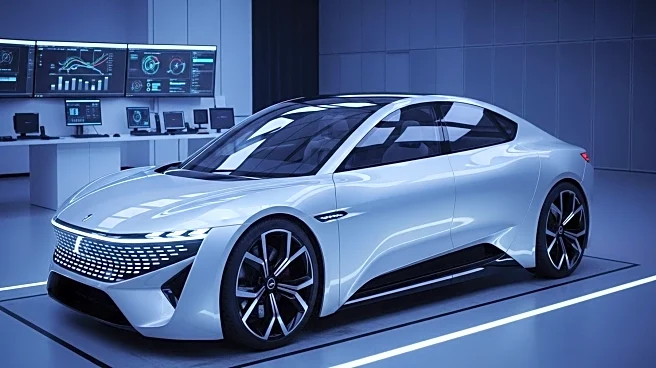What is the story about?
What's Happening?
Tesla's self-driving technology is facing ongoing investigations by federal safety regulators due to numerous safety violations. The National Highway Traffic Safety Administration (NHTSA) has initiated multiple probes into Tesla's Full Self-Driving (FSD) system, which has been involved in dangerous driving incidents such as running red lights and driving in the wrong lane. Despite these investigations, Tesla continues to introduce new features, including plans for a robotaxi service. The regulatory framework in the U.S. allows automakers to self-certify compliance with safety standards, limiting pre-market approval of new technologies.
Why It's Important?
The repeated investigations into Tesla's self-driving technology highlight the challenges regulators face in managing the safety of rapidly evolving automotive technologies. The self-certification regime in the U.S. means that new features can be introduced without prior approval, raising concerns about the adequacy of current safety standards. Tesla's ambitious plans for self-driving cars and robotaxis could significantly impact the automotive industry, but the lack of stringent regulation may pose risks to public safety. The situation calls for a reevaluation of regulatory approaches to ensure that technological advancements do not compromise safety.
Beyond the Headlines
The ongoing scrutiny of Tesla's self-driving technology raises ethical questions about the balance between innovation and safety. As automakers push the boundaries of autonomous driving, regulators must consider the implications for public trust and the potential consequences of inadequate oversight. The debate over self-driving technology also touches on broader issues of liability and accountability in the event of accidents involving autonomous vehicles. These considerations may drive future policy discussions and influence the development of more comprehensive safety standards.

















